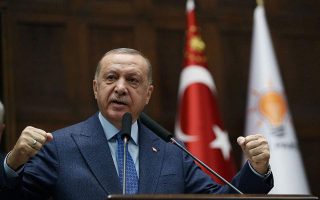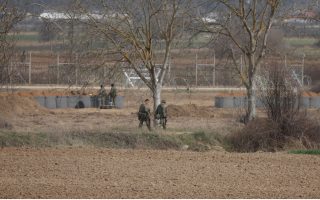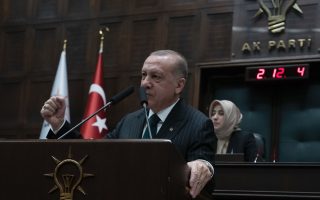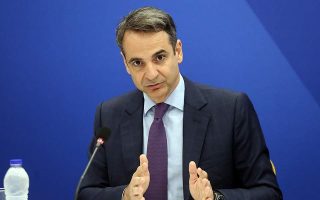Erdogan’s plans and Greece’s moves
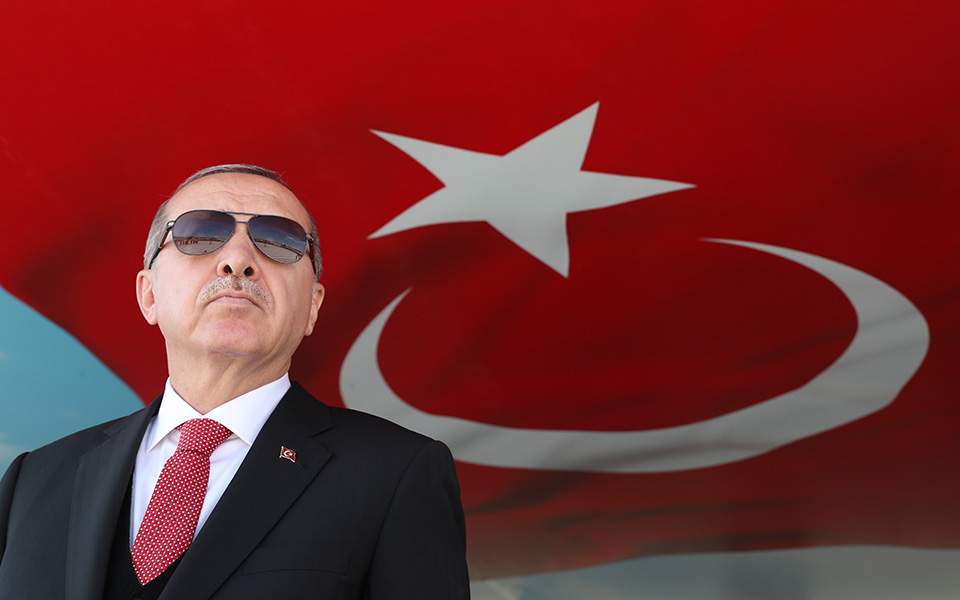
The unprecedented situation we are experiencing due to the pandemic calls for level-headedness, restraint, understanding and cooperation. Unfortunately, some politicians are insisting on their maximalist visions. They talk about changing international treaties and seeking border changes so that they correspond to those of their “heart.”
Turkish President Recep Tayyip Erdogan’s expansionist instincts will not be easily tamed. And it’s not just about Greece or Cyprus. It’s about the Balkans, Libya, Syria. The gradual return to normality means a return to job of managing this difficult neighbor of ours, not only for politicians and military officials, but also journalists, to the extent that the latter shape public opinion and are part of the equation.
There are many open fronts. Erdogan is seeking to expand Ankara’s power throughout the Eastern Mediterranean, although there is some question over the extent to which the Turkish economy will allow this. In Libya, the instability continues and the only thing that is certain at the moment is Turkey’s determination to play a role in shaping the country’s domestic political landscape and use this influence to create an axis that will earn it energy, trade and geopolitical benefits.
At the same time, it continues its carefully planned provocations against Athens and Nicosia, while developments in the global economy and energy in particular have led to the postponement of drilling plans by energy giants in the Cypriot exclusive economic zone (EEZ).
The European Union’s relationship with Turkey is another major parameter in the equation of Greek-Turkish relations. We have to manage it carefully, to utilize it, with wise planning and level-headedness. The same applies to the delimitation of Greece’s EEZ, initially with Italy, which is already in progress, but also with Egypt and Cyprus, as well as Albania.
The deepening of Greek-American defense cooperation, which theoretically has cross-party support, strengthens Athens, but no one can say for sure to what extent, especially as long as President Donald Trump remains in the White House and with whom Erdogan has created a personal relationship.
There are many dilemmas and the options are not easy: from the management of migration – which has been at the forefront in recent years – and the situation in the Aegean with the constant Turkish overflights, to the possibility of appealing to the International Court of Justice in The Hague, at the right time. The puzzle does not just involve two players. Any planning should also aim to highlight the role that Greece plays on the regional chessboard, where the Europeans, the Americans, the Chinese and the Russians, as well as the Israelis also have interests.
The benefits of a common, nonpartisan approach are obvious, as that would provide consistency and continuity to Greece’s aims. And then there is the crucial role of the media. They can serve the national interest if they present to the public all aspects of the issues, and do so with level-headedness and realism, explaining the obvious – that agreements between nations that can stand the test of time entail compromises.
